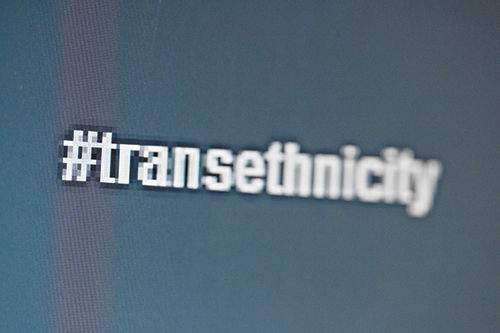If you’re familiar with the blogosphere in any way, shape or form, chances are you’re either a Tumblr user or you’ve stumbled upon the website at some point.
Appropriating cultural identity

If you’re familiar with the blogosphere in any way, shape or form, chances are you’re either a Tumblr user or you’ve stumbled upon the website at some point.
If you haven’t heard of Tumblr, congratulations, you’re doing something right—because it’s a terrible, terrible place (as a Tumblr user myself, I’m half joking here). It’s a free “blogging” platform that allows users to customize their own Tumblelog. Users are free to post text, photos, videos and other media with little or no censorship.
Like many other social network and blogging sites, Tumblr is filled to the brim with what are called “social justice bloggers/tumblrs.” These are users who go around policing other people’s posts and opinions and letting others know when they’ve stepped too far out of line. Social justice bloggers tackle everything from issues of race and ethnicity to veganism, war, abuse and pretty much any other topic you can think of.
While it’s good that these topics are being discussed in an open forum that allows everyone to have input, it’s almost farcical. Sure, providing an opinion via the Internet or, worse, Tumblr, is great—but that opinion is null unless it is backed up with evidence. Plus, blogging about your opinion is not the same as being an activist in real life, which is how many of the social justice bloggers on Tumblr act.
One of the most recent trending topics within the social justice blogosphere is the idea of transethnicity. Transethnicity is when a person of one ethnicity identifies with aspects of another culture or ethnicity. This is prevalent with individuals who have been adopted and then raised in a different country and culture than what they were born into.
There is obvious merit to this. However, the reason transethnicity has been a popular topic the past few weeks is because there has been a rise in individuals (read: white people) claiming that they identify with another culture and wish to claim that cultural identity as their own.
When this happens, people get angry (for obvious reasons). If you want to take on a different cultural identity just because something within you stirs when you read manga or eat bratwurst, it doesn’t mean you can just hop on over and be a part of that culture.
There’s a clear difference between having a respect and love of another culture, and attempting to completely assimilate into that culture without having to face any oppression that said culture has gone through—it’s racist. People currently labeling themselves “transethnic” via Tumblr only further ethnic stereotypes and blatant racism both on a cyber level and in the real world.
Hell no.
If you’re uncomfortable in your own skin, then you should be able to do something to change it. However, completely appropriating another identity is not the answer.
Cultural appropriation has been a huge problem for pretty much as long as there’s been colonialism. The U.S. isn’t the only country guilty of it, but we’re sure doing a great job of being appropriative all-stars. Cultural appropriation is all around us, and sometimes it’s inevitable.
For instance, tattoos and piercings are a fashion norm at this point, yet they hail from all different cultures. This one is harder to tackle, but just because tattoos and piercings are accepted parts of multiple cultures doesn’t mean you have to buy that Aztec-print shirt at Urban Outfitters. Besides, that stuff looks tacky anyway.
This whole transethnic hashtag trend will pass because that’s how the Internet works. That right there is one of the main problems with making transethnicity a mainstream thing. If it’s simply enough to just wake up and think, “I identify with insert ethnicity differentiating from your own today!” you can claim that identity (because we have free will). Then you can also dump said identity as soon as you get tired of it, thus illegitimatizing that culture.
Racism is bad. Claiming another cultural identity based on blatant stereotypes is problematic and inherently wrong. It’s unethical. Think about it, and don’t do it.





